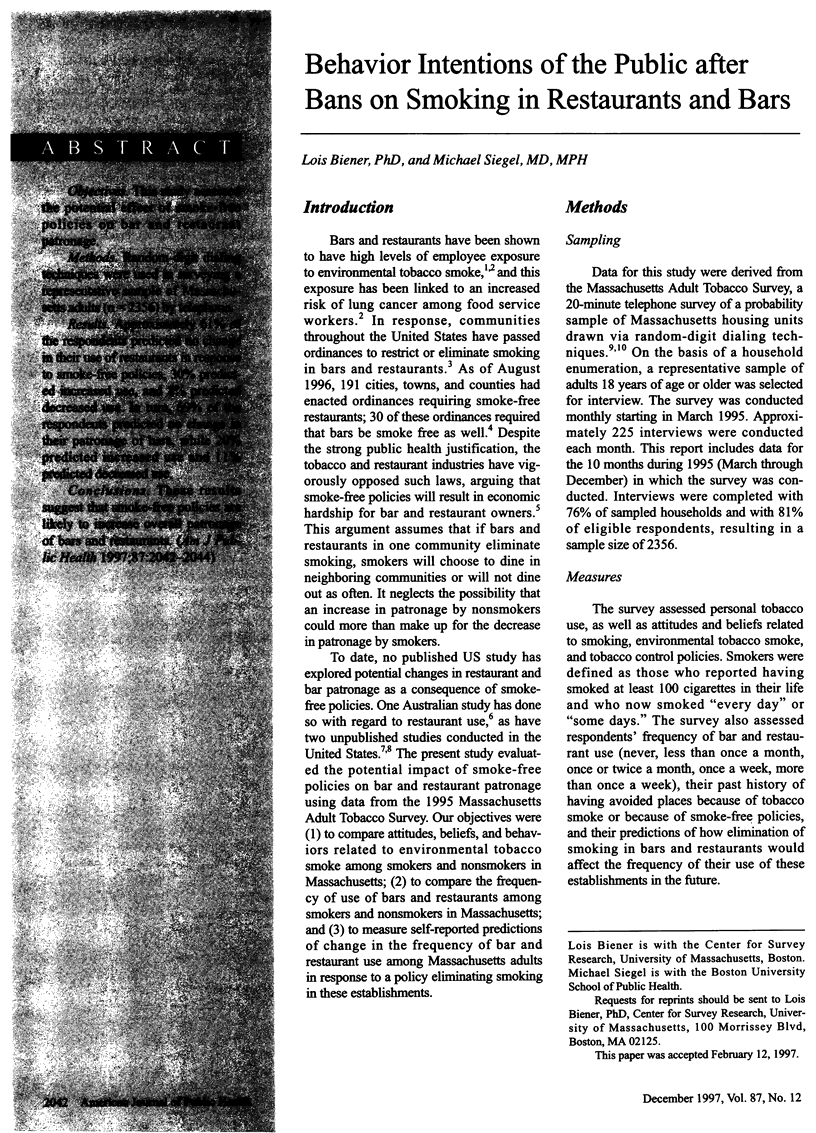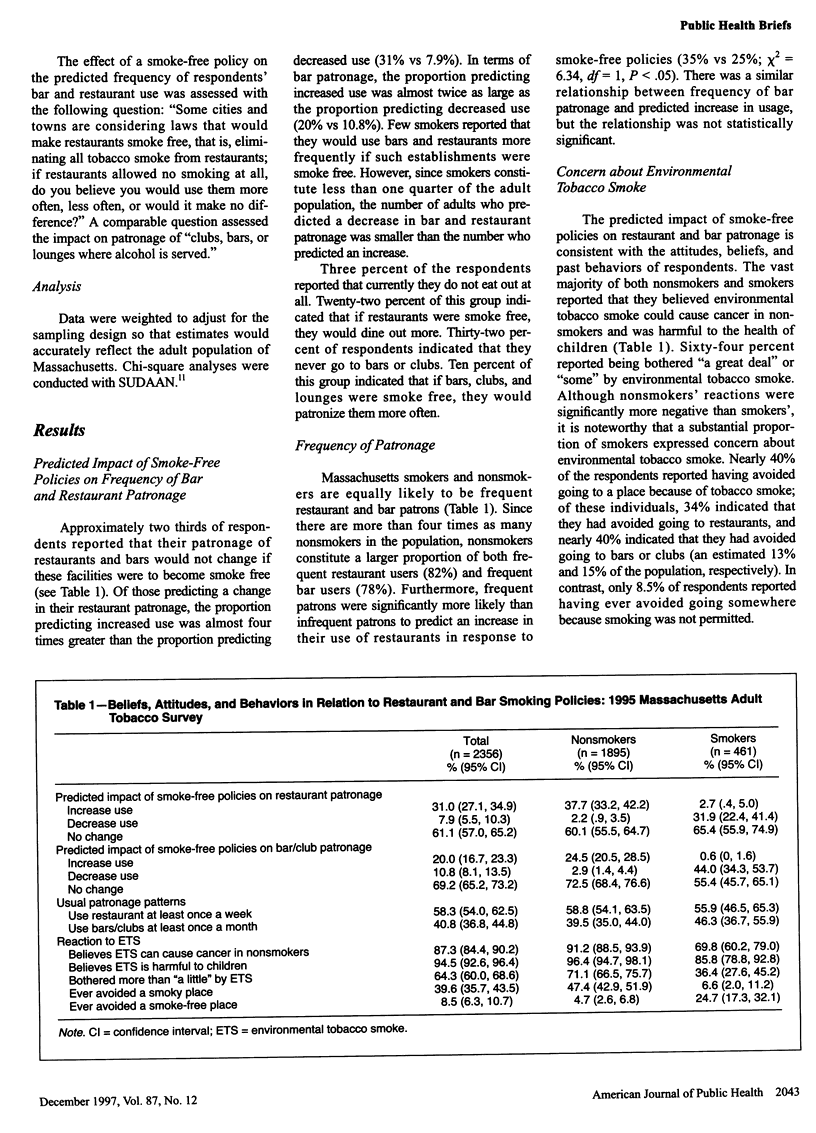Abstract
OBJECTIVES: This study assessed the potential effect of smoke-free policies on bar and restaurant patronage. METHODS: Random-digit dialing techniques were used in surveying a representative sample of Massachusetts adults (n = 2356) by telephone. RESULTS: Approximately 61% of the respondents predicted no change in their use of restaurants in response to smoke-free policies, 30% predicted increased use, and 8% predicted decreased use. In turn, 69% of the respondents predicted no change in their patronage of bars, while 20% predicted increased use and 11% predicted decreased use. CONCLUSIONS: These results suggest that smoke-free policies are likely to increase overall patronage of bars and restaurants.
Full text
PDF


Selected References
These references are in PubMed. This may not be the complete list of references from this article.
- Glantz S. A., Smith L. R. The effect of ordinances requiring smoke-free restaurants on restaurant sales. Am J Public Health. 1994 Jul;84(7):1081–1085. doi: 10.2105/ajph.84.7.1081. [DOI] [PMC free article] [PubMed] [Google Scholar]
- Samuels B., Glantz S. A. The politics of local tobacco control. JAMA. 1991 Oct 16;266(15):2110–2117. [PubMed] [Google Scholar]
- Schofield M. J., Considine R., Boyle C. A., Sanson-Fisher R. Smoking control in restaurants: the effectiveness of self-regulation in Australia. Am J Public Health. 1993 Sep;83(9):1284–1288. doi: 10.2105/ajph.83.9.1284. [DOI] [PMC free article] [PubMed] [Google Scholar]
- Siegel M. Involuntary smoking in the restaurant workplace. A review of employee exposure and health effects. JAMA. 1993 Jul 28;270(4):490–493. [PubMed] [Google Scholar]


